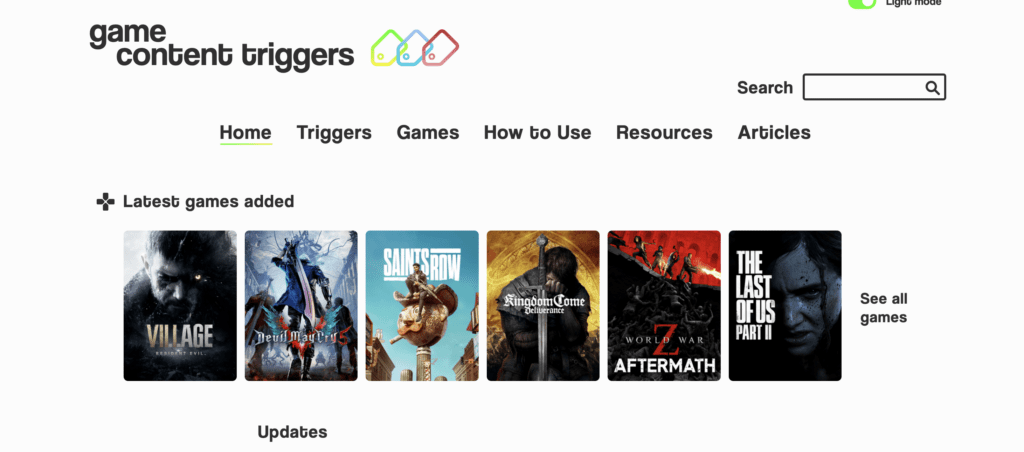Update: On August 25, 2024, an article was published by IGN titled A Prominent Accessibility Advocate Worked With Studios and Inspired Change. But She Never Actually Existed. In it, information suggested founder of the Game Content Triggers Database Coty Craven engaged in misrepresentation of self and others within the accessibility gaming space. Craven took down the database in the course of erasing their online presence. The work of the database, and the many people who volunteered their time to it, was significant. We also recognize the harm done by Craven to the community cannot be ignored. This article was written and posted in good faith in December of 2023 when the database launched. It will remain available as an archived piece in order to recognize the hard work of those involved in the database.
Several years ago I gave a talk at Games for Change about empathy and ethics in game design. I shared an incident I had while playing through What Remains of Edith Finch and the distress I experienced during one particular part of the game. The point of sharing this story was to highlight how game experiences can evoke intense emotions and, as designers of those experiences, developers have an ethical duty to prioritize the psychological well-being of players. Safety tools like content warnings or special toggles are becoming more common, but most of the work of finding and tagging traumatic or distressing content still falls on players. The Game Content Triggers Database aims to make it easier for players to identify problematic content and choose if and how they want to engage with it.

The Game Content Triggers Database is run by a small team of people of diverse genders, disabilities, ethnicities, nationalities, and backgrounds. This team of volunteers includes game developers, accessibility experts, mental health professionals, and other folk who are passionate about prioritizing the mental well-being of game players. Coty Craven, founder of the database, stated that the goal of the database is to empower players to make informed choices about the games they play and the content they consume while playing. The site launched in early December, and as of December 14th has clocked over 28,000 page views and 5,000 unique visitors.
In addition to providing a much-needed service to the games community, this project is also deeply personal. Coty shared in a message, and gave me permission to share here, about their own experience with trauma and how a lack of safety tools around traumatic or distressing content in games has impacted them:
My therapist asked me to avoid anything that would trigger my fear of being trapped in a fire because she wanted to be present to process things with me. Not thinking (because games have always been how I relax and unwind) I started up The Witcher 3 and immediately get to a quest where you have to rescue someone from a burning barn. I had a panic attack and really started questioning if I’d be able to enjoy games while doing this work in therapy.
Coty Craven
For many of us, games are a way we choose to relax, to decompress, and to recharge. We don’t want to have to worry about the things that distress us in our daily lives popping up in our gameplay. It doesn’t even have to rise to the level of trauma – sometimes there’s things we just don’t want to see or deal with while we’re playing. This is the genius of the database: it allows players to search by game title or by common trigger tags (i.e. spiders, gore, etc.), and lets players know if something can be avoided in part, entirely, or not at all. It takes the guess work out of exploring a new game but without giving the game away.
In the DCTD merch store, there’s a shirt with the slogan “we cry so you don’t have to.” On one hand, this bit of dark humor reflects the emotionally challenging work it takes to document distressing content in games. On the other hand, it spotlights an optimistic and proactive approach to make player psychological safety the rule. In short, the Game Content Triggers Database is a form of mental health accessibility.
The Game Content Trigger Database is not currently accepting community-submitted games, however developers can request to have their games reviewed. The team is also looking for volunteers who have deep knowledge in big game franchises, are mental health professionals, or both! All inquiries should be sent to GameContentTriggersDB@gmail.com. You can receive updates and follow the GCTD team’s work on social media @GameTriggersDB.
